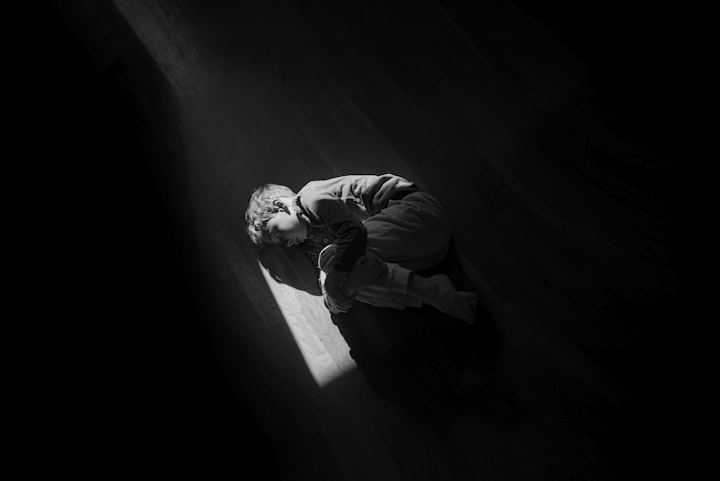Understanding Trauma
Part 2 of an ongoing series

Our first article explored the (3) different types of trauma, today let's take a look at some of the symptoms that can accompany each of these. While many of them are the same, the difference is that in the latter 2, the sufferer may have more severe long-term effects as a result of longer-term trauma.
Some of the symptoms of acute trauma or long term trauma are:
- Depression
- Increased sense of fear or dread
- Avoidance
- A constant "knot" in your stomach or chest
- Denial
- Sadness
- Anger
- Confusion
- Anxiety
- Numbness
- Short Memory Loss
- Fugue States
- Disassociation
- Insomnia
- Nightmares
- Inability to make future plans
- "Holes" in one timeline
The key difference between someone with acute trauma and those with chronic/complex trauma is that the acute sufferer may have symptoms that last a few hours, a few days, or a couple of weeks in terms of the more severe things listed. The individual with either chronic or complex will develop a series of "survival" patterns as a result of dealing with many or all of these symptoms over the course of months or even years.
While this is not an all-inclusive list you can see that trauma can have a very negative impact on a person's overall emotional and mental well-being.
For those who have Chronic or Complex Trauma, a condition called Post Traumatic Stress Disorder can develop which can affect a person's ability to make logical/rational decisions every day as they become stuck in a sort of "fight or flight" pattern of living.
The person with PTSD may find that they jump at noises or when touched, they are always "on," constantly scanning the room for potential danger. They may have nightmares or flashbacks that prevent them from being focused on the present. Someone walking up to them from behind may cause an instinctual reaction to jump, run or in some cases even punch.
In more severe cases, a person can develop a disassociative disorder that causes them to "go away," into the safety of their own mind. While they may talk, walk, and act like other functioning people, a part of them is disconnected from the events taking place, never quite making solid connections in the now.
Now let's think about this. If, you are constantly fearful, constantly worried, constantly on "alert" for the next thing that is going to come your way that could potentially bring you pain or hurt you again, can you see how that person could potentially have reactions that don't always make sense?
They are literally stuck inside a defense/survival mode that says "be aware," "stay safe," "don't get hurt again." It is an exhausting and confusing place to be in when the reality is all you want it to feel safe, is to trust, is to know that you don't have to be on alert all the time.
It can lead to serious depression and anxiety and can cause you to push people away before they can hurt you while clinging desperately to the ones who have given you safety because its a small piece of comfort inside your daily storms.
The good news is, there is help! For someone with acute trauma, talk therapy and even group therapy can help a person sort out the complex emotions they are experiencing as time does its magic and helps to ease some of the pain.
For those with Chronic or Complex trauma, more intensive therapy is often needed as the individual is having to sort through potentially years of damage from their traumatic experiences.
Therapies like EMDR (Eye Movement Desensitization and Reprocessing), DBT (Dialectical Behavioral Therapy), CBT (Cognitive Behavioral Therapy), and general psychiatric therapy can greatly reduce the symptoms and help someone with these types of traumas to relearn normal responses to situations without going into the survival mode they have lived in for so long.
There are also several medications that have been tested and proven to help the person with Chronic / Complex trauma ease some of the symptoms that prevent them from fully enjoying their lives.
Loving someone who has experienced trauma is difficult. It's not an easy road. It is hard to understand why what may seem like a simple situation to you can feel so vastly different to them.
For example, a broken dish to you could be no big deal, but to a person who was slapped, punched, or spanked if something broke as a child, breaking a dish as an adult can trigger an immediate sense of panic and fear. They might cry or apologize profusely, their body posture might change: shoulders lowered, back hunched, eyes downcast; all submissive body postures that say "please don't hurt me."
Even if you, the partner, family member, friend, or loved one would never hurt them for breaking that dish, the severely traumatized person has a brain that instinctually says "protect yourself before you get hurt again." Keep in mind that for many, these behaviors are what kept them protected and in cases of severe abuse probably alive, these reactions are now ingrained into their daily functioning in life.
What may seem silly to you, having to reassure this person that they are safe or aren't going to be hurt, after all, it's never crossed your mind, to them might be exactly what they need to help them get out of that fight or flight episode. A traumatized brain IS a different brain. Things that might not be necessary for the average person are often what the traumatized person needs to feel safe.
While everyone who has these types of traumas can have different reactions, universally, individuals living with this are often in a more heightened state and feel things in a way that can make their reactions feel extreme.
In my next article, I'll delve more into the science behind all of this. The brain literally rewires itself to help a person with repeated trauma survive and adapt. A big part of the therapies I've listed above is to help the individual with trauma, get the wires back in place.
As always, feel free to share these with anyone you think might need or want a better understanding of these issues. The more we know the easier it is to understand and the less personal it will feel if someone you love has reactions that don't always make sense.
Mental Health is not just an individual issue, it's a universal one. In the case of Chronic and Complex Traumas keep in mind that the person who has been diagnosed with this has been diagnosed in part because they have gone through really awful and horrible things on a long-term, repeated basis.
They didn't choose this. They didn't decide to be hard to understand or difficult to be around. They developed these reactions as a way of surviving and the fact that they are still standing, still making it through each day, is something to be admired not pitied.
To survive the worst and still try to find reasons to laugh and live and love even if it isn't always a neat and linear path is a beautiful thing. Never forget that if they are choosing love over hate, trying to find joy inside their sadness and they have invited you into their life, that means something to them because their life has often been a very scary place.
Hope you have a great one wherever you are, and remember, if you can do nothing else in this life, then be kind. It is free for you to give but to the person who receives it, well, that's priceless.
#mentalhealthmatters #cptsdawareness #auntiebsadvice #yournotalone #mentalhealthmatters #anxietyawareness #traumainformed #trauma #emdrtherapy #DBT #cbt #traumarecovery #traumahealing






Comments
There are no comments for this story
Be the first to respond and start the conversation.